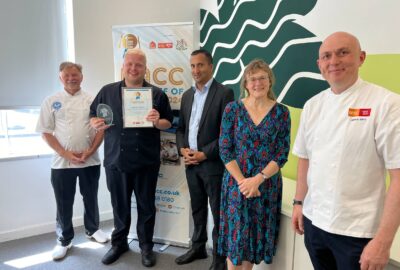Those new to festival catering may feel that whilst it is an opportunity to spend the summer outdoors listening to great music and making money, the reality might be a little daunting can be high-risk. However, if you are interested in diversifying, Mark Laurie from the Nationwide Caterers Association (NCASS) believes now is an excellent time to start, due to an increase in demand for what is described as “agile catering” – the ability to deliver hospitality in different formats.
Mark Laurie says “With the pandemic, the pipeline of new businesses coming through was disrupted and there is arguably now a shortage of quality traders. If you have a popular food concept which can be produced at volume, festivals and events can offer an unrivalled volume of custom from, essentially, a captive audience.”
STICK TO THE RULES
To enter this sector, your site managers must be trained to Level 3 in Food Safety and your team trained to Level 2. You’ll also need to meet standard stipulations including registering the business, documented risk assessments and liability insurance. Your mobile catering unit must meet the required safety standards and be regularly inspected and maintained.
UNDERSTAND YOUR AUDIENCE
Researching the market is crucial to understand who will buy your food and where they are likely to be. Mark says “Don’t do big festivals in your first year. You can make the same mistakes at a fraction of the cost at smaller shows and learn your trade. These days food is often curated in a similar way to the acts and other entertainment, so think about where you fit in or what to sell if you want to trade at certain events. It’s worth bearing in mind that it’s not the size of the event, it’s the ratio of customers to caterers that is important.”
TOOLS OF THE TRADE
As far as equipment is concerned, the cheapest option is a gazebo. Mark says “Many businesses will have a gazebo set up and a van or trailer as well, this is because some events can only accommodate gazebo trading or the gazebo is used as additional kitchen space behind the van at events. Trailers are probably the best option in terms of practicality, but you will need to consider branding and standing out.”
Most festivals charge for power connections and per plug, so the less electric equipment there is, the lower the costs. Often gas equipment works more efficiently, but costs more.
The choice of vehicle depends on your operation. Many NCASS members hire support vehicles for the summer because if they breakdown, the hire company has to replace them. If you decide to get your own, any vehicle over 3.5 tonnes combined weight may mean you need to upgrade your driving licence and potentially get a tacho meter.
FIND YOUR NICHE
Burgers are the classic mobile catering food, but so many businesses already serve burgers, it might be difficult to stand out, so be creative. Mark says “The key is to specialise and not be a jack of all trades. You can really sell anything you believe will work. Prices depend on several factors, not least the pitch fees, but it is the cost of production which will determine the price you can charge. Traditionally businesses look to make a gross profit percentage of 71%, but I believe the cost of living has impacted what many businesses feel they can charge. Residential weekend festivals tend to work on 500 customers per caterer, but this likely relies on them selling out. You can work out roughly how many meals you’ll sell based on the eating opportunities per day, the type of food you sell and the number of competing businesses.”
EVENT CATERING CASE STUDY
NCASS member Thomas Mackay started Pizzeria Bufala, a mobile catering business two years ago, serving authentic Neapolitan pizza from a vintage Citroen HY van. The business is the first of its kind to receive a prestigious international distinction, awarded only to pizzerias following the strict rules of classic Neapolitan pizza.
According to Thomas, it needn’t be expensive to set up a mobile catering business. “Many street food traders dip their toe in the water with a pop-up marquee or maybe a horse-box trailer. As this was a full-time venture for me, I opted for a vintage van from the start that I was confident would get me bookings by itself (and it did, before I’d even cooked my first pizza).”
It helps if you have some level of mechanical skills so you can repair your own vehicle. “This may apply slightly more to vintage food trucks,” he says, “but being able to maintain and make minor roadside repairs can save you thousands in lost revenue. Nearly every event I go to, a trader has been unable to make it due to a breakdown. I even changed my own starter motor last week and this saved me three private events and a pop up that I would to have otherwise cancel.”
Food festivals can be worthwhile, but he recommends doing your research. “Some will promise the world and have few visitors, while others have plenty of visitors, but similar vendors selling the same thing. Others will charge a ticket price or high car parking fees which limits how much customers are then willing to spend on your food.”
Thomas also recommends investing in the areas of your business that will generate revenue. “While some may consider my vintage van or aluminium lined pizza boxes and ‘Napoli trained chef credentials’ as completely unnecessary, they were actually well calculated decisions that differentiated me from my competitors,” he says. “Details such as sustainable packaging, fresh and carefully sourced ingredients, and accessibility (such as online ordering, apps and digital payments) are all factors to be considered.”


